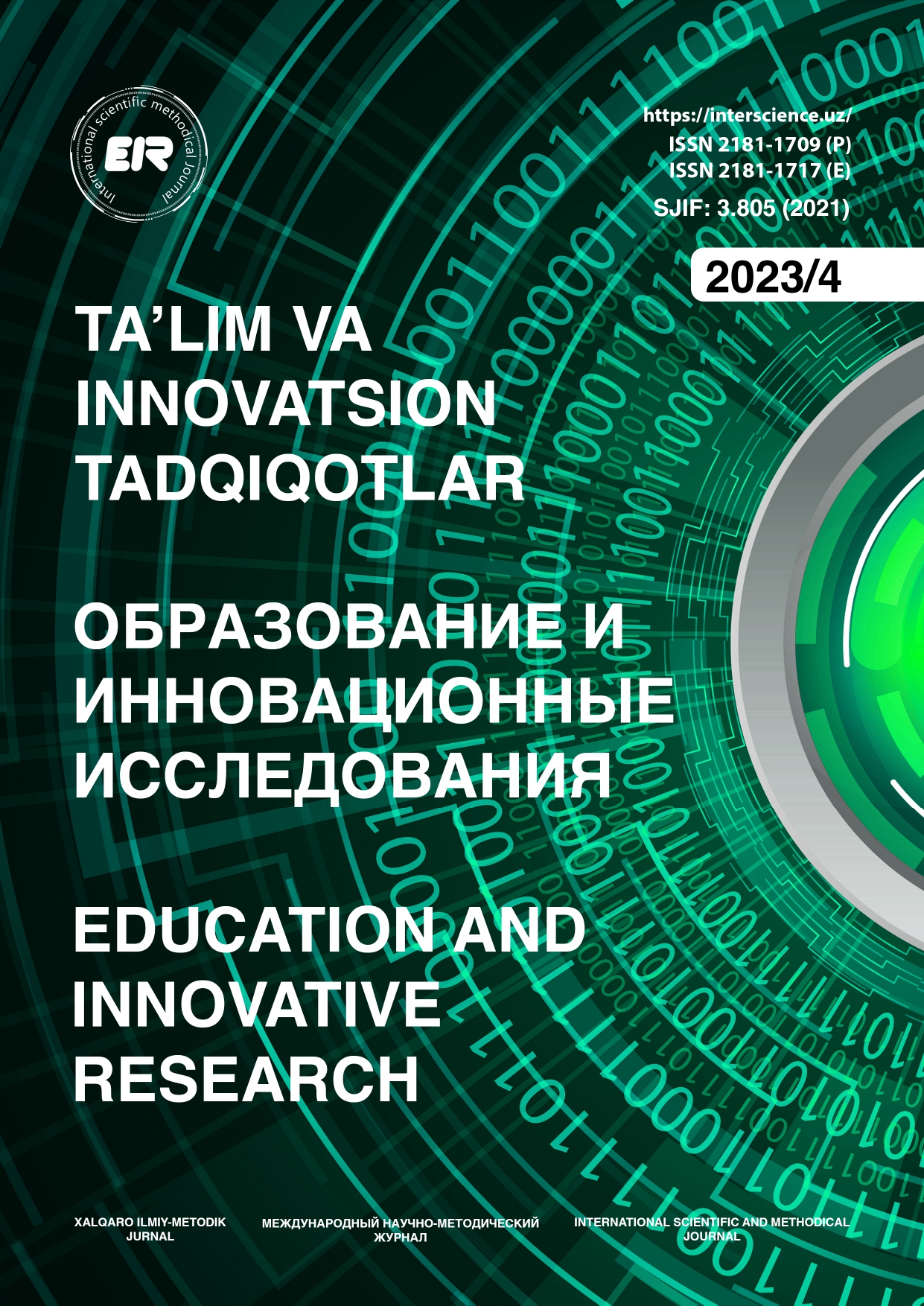МАТЕМАТИКА — ЭТО ВЕСЕЛО?
Арипова Елена Азизовна, Ким Игорь Лаврентьевич, Сурков Дмитрий Юрьевич Преподаватели Международного Вестминстреского Университета в Ташкенте
Ключевые слова:
Онлайн-обучение, игры, интерактивные подходы в преподаванииАннотация
В статье обсуждаются причины необходимости применения игр в преподавании математики. Это исследование носит описательный характер, его результаты предлагают некоторые практические решения, которые могут быть применены в преподавании.
Библиографические ссылки
Bourgonjon, J., Valcke, M., Soetaert, R., Schellens, T. 2010. Students’ perception about the use of video games in the classroom. Computers & Education, vol. 54, no.4, pp. 1145-1156.
Bourgonjon, J., De Grove, F., De Smet, C., Van Looy, J., Soetaert, R., & Valcke, M.
Acceptance of game-based learning by secondary school teachers. Computers & Education, vol. 67, pp. 21-35.
Egenfeldt-Nielsen, S., Meyer, B., & Holm Sørensen, B. 2011. Serious Games in Education – A Global Perspective [E-book]. Copenhagen: Aarhus University Press.
Erkkilä, M. 2017. Learning English from Digital Games: Finnish upper secondary school students’ perspective on game-enhanced language learning. Helsinki: University of Jyväskylä.
Grof, J., Howells, C. and Cranmer, S. 2012. «Console Game-Based Pedagogy: A Study of Primary and Secondary Classroom Learning through Console Video Games», International Journal of Game-Based Learning, Vol. 2, No. 2, pp 35-54.
Ho, J. 2020. Gamifying the fipped classroom: how to motivate Chinese ESL learners? Innovation in Language Learning and Teaching, 14:5, 421-436, https://doi. org/10.1080/17501229.2019.1614185.
Houghton, E., Aston, H., Featherstone, G., Perrotta, C., Houghton, E., & Aston, H. et al. (2013). Game-based
learning: Latest evidence and future directions. Slough: NFER.: (NFER Research
Programme:
Innovation in Education). Retrieved from https://www.nfer.ac.uk/publications/GAME01
Lengeling, M. and Malarcher, C., 1997. Index Cards: A Natural Resource for Teachers. ‘Forum’ , October – December 1997 ., Vol. 35(No 4), p.Page 42.
Mathe, M. 2020. Mapping the Landscape of Digital Game-Based Learning in Swedish Compulsory and Upper-Secondary Schools – Opportunities and Challenges for Teachers [Doctoral dissertation thesis] Report Series, Department of Computer
and System Sciences, Stockholm University.
Mifsud, C., Vella, R. & Camilleri, L. 2013. Attitudes towards and efects of the use of video games in classroom learning with specifc reference to literacy attainment. Research in Education, 90(1), 32-52. https://doi.org/10.7227%2FRIE.90.1.3.
Prensky, M. 2007. “Why Education and Training Have Not Changed”. In Digital Game-Based Learning, McGraw-Hill.
Sundqvist, P., & Wikström, P. 2015. Out-of-school digital gameplay and in-school L2 English vocabulary outcomes. System, 51, pp. 65–76. http://dx.doi.org/10.1016/j. system.2015.04.001
Sylvén, L. K. 2013. CLIL in Sweden – Why does it not work? A Metaperspective on CLIL across contexts in Europe. International Journal of Bilingual Education and Bilingualism, 16(3), pp 301-320. doi.org/10.1080/13670050.2013.777387
Wiklund, M., & Glimbert, L. Students perception of a learning environment and the teachers role while using unmodifed computer games as learning tools in upper secondary education. Department of Computer and Systems Sciences. Stockholm University.
Yu, Z., Gao, M., & Wang, L. 2020. The efect of educational games on learning outcomes, student motivation, engagement and satisfaction. Journal of Educational Computing Research. 1(1) pp 1-25. doi.org/10.1177/0735633120969214.
Xu, Z., Chen, Z., Eutsler, L., Geng, Z., & Kogut, A. 2020. A scoping review of digital game-based technology on English language learning. Education Tech Research. 68(3), pp. 877-904. doi.org/10 1007/s11423-019-09702-2.
Yue, W., & Zin, N. (2009). History educational games design. Institute of Electrical and Electronics Engineers (IEEE).





